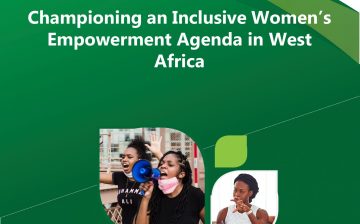Jimm and I explore the indispensable role of women in West Africa’s socio-economic and political spheres and advocate for a transformative, inclusive approach to women’s empowerment. The article critically examines historical and current efforts by governments, civil society organizations (CSOs), and women’s movements, highlighting significant strides and persistent challenges. Despite notable progress, West African women continue to face systemic barriers such as gender-based violence, limited access to resources, and underrepresentation in decision-making roles.
Central to the discourse is the need for male engagement in addressing gender inequality, inspired by the 1995 Beijing Declaration. We argue that excluding men from empowerment initiatives exacerbates the gender gap and risks reinforcing adversarial dynamics. Instead, we call for collaborative frameworks that involve men and boys as allies and co-creators of solutions, fostering holistic and sustainable progress.
The article provides actionable recommendations, including the establishment of gender-inclusive platforms by CSOs, advocacy for competency-based opportunities, grassroots mobilization to bridge social differences, and strategic government partnerships to mainstream gender-sensitive policies. It underscores the importance of balancing efforts to dismantle patriarchal structures while avoiding the establishment of a matriarchy.
To conclude, we emphasize that achieving gender equality by 2030 requires inclusive strategies that engage all societal members—women, men, boys, and girls—to address the root causes of inequality.


Leave a Reply